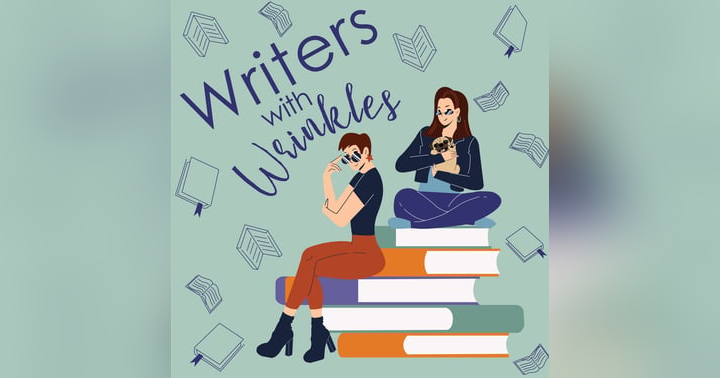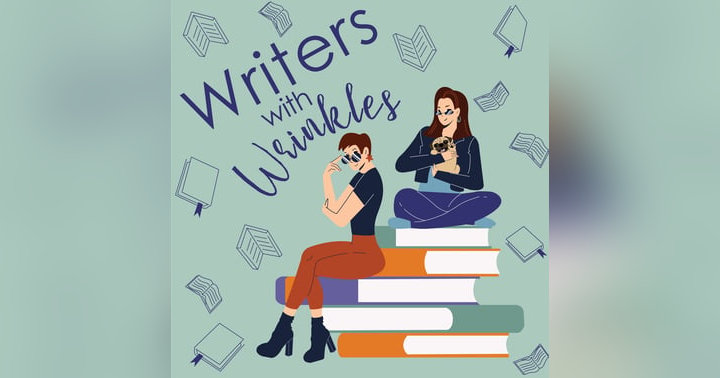What Editors Really Look For, with Alison Romig: First Pages, Comps, and Connecting with Readers

In this episode of Writers With Wrinkles, Beth and Lisa sit down with Alison Romig, Associate Editor at Delacorte Press, to talk about what editors really look for when reviewing submissions. From crafting irresistible first pages to choosing the right comparison titles (comps), Alison offers clear, actionable insights that will help writers approach their manuscripts—and the publishing process—with more confidence and strategy.
🎧 Why Horror Made Her a Reader
Alison describes herself as a lifelong fan of horror fiction. Horror, she explains, isn’t just about scares—it’s about control. When the world feels chaotic, scary stories let us choose when to close the book and when to face the fear again.
That same sense of engagement is what she now looks for as an editor: stories that make readers feel something, whether it’s a chill, a laugh, or a pang of recognition. And yes, she confirms—horror is having a major moment, especially in YA and middle grade.
📖 First Pages (and First Lines) Matter—A Lot
When it comes to submissions, Alison doesn’t just read the first page—she studies the first line. Growing up, she and her mom would go to bookstores and compete to find the best opening lines. That early training still shapes how she reads today.
“Those first lines and pages need to make me curious,” she says. “Even if they aren’t perfect, I have to want to know what happens next.”
She often finds that many debut authors start their novels too early—sometimes ten or twenty pages before the story truly begins. Her advice? Don’t be afraid to cut the warm-up. Readers (and editors) don’t need to see the stretching routine; they want the race.
🧠 The Power of the Right Comp Titles
One of Alison’s biggest pieces of advice has nothing to do with the manuscript itself—it’s about the pitch. She wants writers to take comparison titles seriously. Accurate comps tell an editor two things:
You understand your genre and market.
You know your reader.
“The best comps aren’t the biggest names,” she explains. “They’re the ones that truthfully reflect your story and your audience.”
When your idea of the ideal reader aligns with an editor’s, you’ve already made a connection before they even open the manuscript.
✏️ Editing as Collaboration, Not Control
Alison’s approach to editing is intentionally collaborative. She doesn’t hand authors a checklist of changes or rewrite sections herself. Instead, she focuses on where the reading experience hits friction—and invites the author to find the right solution.
“I never want my edit letters to be prescriptive,” she says. “It’s a conversation, not a command.”
That partnership, she believes, is what makes the process rewarding for both author and editor—and ultimately leads to stronger books.
💼 The “Sales Track” Question (and Why It’s Not the Whole Story)
Yes, editors look at sales track when acquiring new projects—but Alison emphasizes that it’s not a death sentence for writers. It matters more when an author is submitting the same kind of book that underperformed in the past.
If a writer is trying something new—say, pivoting from YA contemporary to horror or romance—she sees that as a fresh start. And for middle grade authors worried about the “weird market,” Alison’s take is refreshingly grounded:
“Middle grade has been in a weird place for my entire career. Maybe that’s just what it is—and that’s okay.”
❤️ What She’s Looking for Now
At the top of Alison’s manuscript wish list?
Horror romance.
She’s eager to find stories that blend “a little scary and a little swoony,” and bring those two emotional extremes together in surprising ways. Whether cozy or creepy, she’s ready for it.
🪞 Takeaway for Writers
This conversation is packed with reminders that every great book starts with curiosity—on both sides of the page. Editors, like readers, want to be drawn in, surprised, and emotionally moved.
From tightening your opening to choosing the right comps, Alison’s advice underscores one truth: know who you’re writing for and what you want them to feel.








